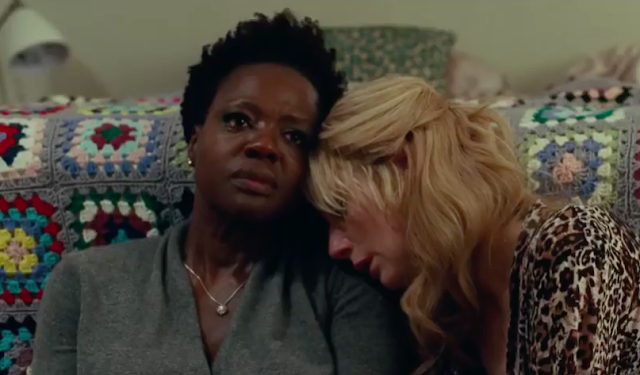A long time ago in a galaxy far, far away….
By Tom Pacak
Almost two months after seeing Quentin Tarantino’s love
letter to 60s cinema, I can confirm that “Once Upon a Time in Hollywood” is
easily my second favorite Tarantino film and easily one of the year’s best
films. Some Tarantino fans may be disappointed that the film doesn’t include
the over the top violence and clever dialogue seen in such classics as “Pulp
Fiction” and “Inglorious Basterds.” Instead, life long fans and even outsiders
get to see a filmmaker who’s evolved into a more mature director. Here,
Tarantino has used the late 60s during the Mansion murders as a backdrop to create
a fictional version of Hollywood only he knows. Tarantino puts into
every frame how much he loves the industry from the 1960s Westerns that shaped
his career, to the great 60s commercials you listen to every time a character
is driving around, and even his imagination of how the Manson murders
happened. This is a very profound and poignant film about failure, redemption,
and old Hollywood.
75% of the film takes place on a February weekend in 1969;
we follow a TV actor Rick Dalton (Leonardo DiCaprio) and his stuntman Cliff
Booth (Brad Pitt). Rick claims he keeps Cliff around as his stuntman but a
hilarious Kurt Russell as the narrator shuts that down quick with “That’s a big
fucking lie.” It’s later revealed Rick got too many drunk driving tickets and
now has to be driven around everywhere. Rick used to be apart of a successful
1950s TV Western called Bounty Law. Now stuck in a rut, casting agent Marvin
Schwarzs (Al Pacino) advises him to start doing Spaghetti Westerns. The only
problem is these Westerns feel way beneath Rick’s pay grade. If he doesn’t do
these Westerns, he’ll be stuck playing minor roles such as the cop who arrests
a robber in a Hollywood flick.
Cliff, on the other hand, has never had a shot at Hollywood
in the first place. A rumor of him killing his own wife and an amazing clash
with an over cocky Bruce Lee (Mike Moh) has plagued whatever shot he had at
making a name for himself. What I really
love about this movie is how Tarantino never reveals if Cliff actually killed
his wife. There’s a lot of evidence that he did kill his wife and a lot of evidence
that he didn’t. His love for his dog and Rick points to the latter. This little
detail is like the briefcase in “Pulp Fiction.” Nobody truly knew what was
inside the briefcase but fans today still discuss. Either way, this is one of those
details that I’m ok with not knowing the full story behind it. The mystery
makes it more interesting.
Bruce Lee isn’t the only celebrity portrayed in the
Tarantino verse. Several iconic 60s actors intertwine in the storyline from
James Stacy (Timothy Olyphant), Steve McQueen (Damian Lewis), and Wayne Maunder
(the late Luke Perry). The most controversial figures shown are Rick’s
neighbors Roman Polanski (Rafal Zawierucha) and Sharon Tate (Margot Robbie).
Several critics have critiqued Sharon Tate’s limited screen time and lines but
I’m not going to do that. We get several scenes of Sharon dancing at parties
and in her house to show Tate as a metaphor of innocence Hollywood once had
before the evil tragedy the Manson family committed. History and fiction
intertwine in a great scene that shows Sharon going to the famous Bruin theater
to watch her herself in her recently released movie “The Wrecking Crew.” The
thing that’s interesting about this scene is it’s the actual Sharon Tate on the
screen, not Margot Robbie.
Not only is this film very sincere about old Hollywood, but it’s
also a blast watching a film only Tarantino and his great cast and crew could
make. Watching Tarantino pull out every 60s movie reference in the book is
every film buffs movie heaven. I already know I can’t wait to watch it again to
spot all of them. It’s also really fun
watching two of Hollywood’s biggest actors (Pitt and DiCaprio) play nobodies in
an industry they’ve dominated in real life.
DiCaprio is in prime form when he plays goofy and weird (see Wolf of
Wall Street). Here, he gets to dig deep
in a man who’s trying to find his way in an industry that decided to move on
without him. Hilarious scenes of DiCaprio purposely hamming up as a bad actor
are fun to watch, but it’s the scenes that show vulnerability that make this
performance unforgettable. An honest breakdown in front of a rising childhood
actor (Julia Butters) made me tear up. Pitt is tremendous as a hard ass and overall sincere
guy. Pitt’s best scene is an intense moment at Spahn Ranch where the famous
Manson cult was known to hang around. This scene plays out brilliantly as a
mini short film in the Tarantino verse.
“Once Upon a Time in Hollywood” is definitely Tarantino’s
first time going soft on us. He wants to show us his version of history and how
it impacted his career. He also wants to show us how much he despises the
Manson cult and what they did. In no way shape or form does he glamorize these
evil people. Instead, he shows them as stupid and evil people who take away the
wrong messages of watching movies. I won’t get into spoilers but you’ll be
cheering the way Tarantino handles his version of the Manson murders. You’ll
also be left thinking about the film’s conclusion about how Tarantino gave us his
version of Hollywood and how it’s much different than reality. You’ll be left wondering
if Hollywood could have kept its innocence if the events at the Tate residence
never happened.
Star rating: 5 stars out of 5 stars
Letter Grade: A+




Comments
Post a Comment